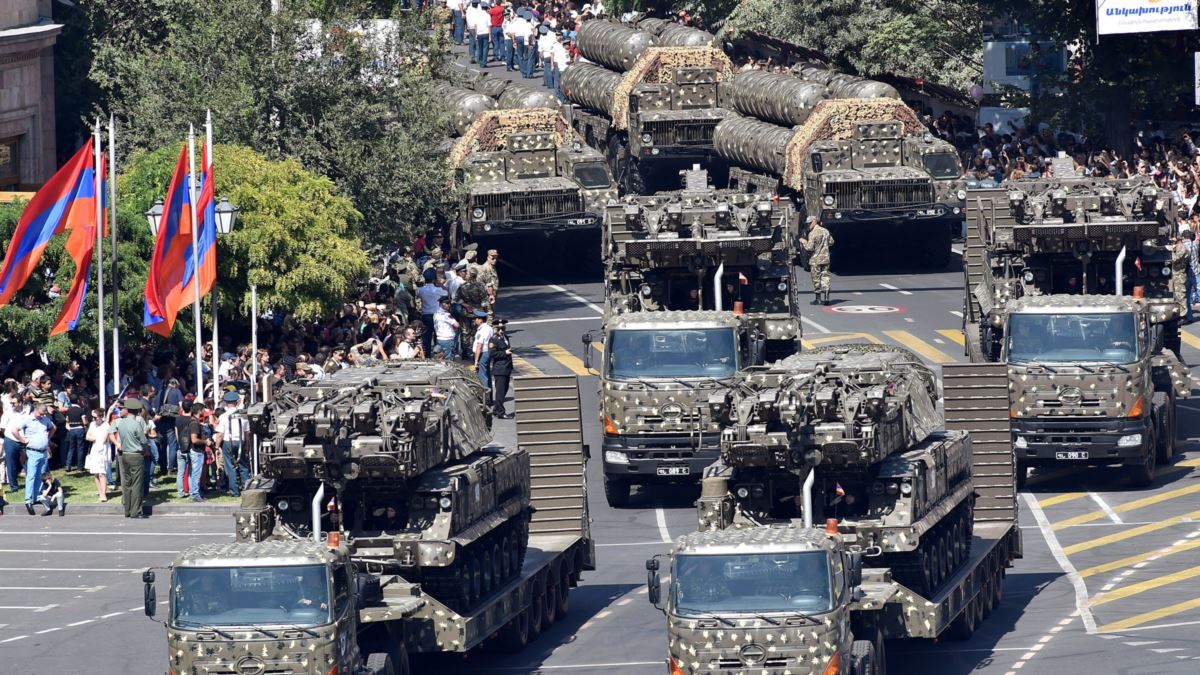'New doors are opening for Armenia': expert on country’s developing defence industry
Expert on Armenia’s defence industry
“New doors are opening for Armenia,” said military expert Leonid Nersisyan, commenting on the country’s growing defence cooperation with several partners. “We’ve reached a stage where we must adapt to the concept of a free market — something unfamiliar to us for objective reasons. As a result, we are making many mistakes while also taking the right steps.”
He believes both the state and private defence companies need to learn how to operate in this new environment. They also have to adjust to the approaches used in different countries. “India works one way, the United States another, France a third. Iran, China, Japan or Italy each have their own specifics,” Nersisyan said.
He praised Armenia’s defence cooperation with India and expressed hope that the country can build equally productive partnerships with other nations.
- Armenian society kept in dark over Karabakh war defeat: opposition and experts react
- ‘US not selling us weapons yet, but we’re interested’ – Armenian Defence Minister
- Armenia and France set to deepen military cooperation in 2025
- “Armenia isn’t militarizing but raising cost of attacking it”: opinion
Comment
Military expert Leonid Nersisyan notes that Armenian media and the public focus mainly on purchases of Indian weapons. He says this happens because Armenian authorities provide little information about procurements, while Indian media publish details widely. He argues this serves a marketing purpose.
“Indian firms do not want these deals to stay secret,” he said. “They need PR so other buyers become interested. They want to show that a country in conflict or at risk bought this equipment from India, and that attracts more customers.”
Nersisyan said he did not find it coincidental that India’s defence secretary, Amit Satija, visited Yerevan a few days ago. Armenia did not disclose visit details, but Nersisyan believes officials discussed joint projects between Armenian and Indian companies. He said Satija deals specifically with India’s defence industry.
The military expert believes that cooperation with India in the defence industry is the right choice for Armenia, as it will allow the country to:
— keep more financial resources inside the country,
— develop local production and companies,
— build close partnerships with major Indian firms and start working with them on international markets.
He said he welcomed similar partnerships with other countries, such as France.
“Imagine a weapons contract worth $100 million,” he explained. “If all $100 million now go abroad, we should aim to keep at least 20% in Armenia. For example, an Armenian company could undertake part of the work. Those $20 million would pay salaries, taxes and investments.”
Nersisyan stressed that Armenia’s defence manufacturers are only beginning to make themselves known. He said they have broad growth potential. “They need another three to five years to mature and start selling on foreign markets,” he added.
He argued that entering new markets should become a strategic goal for Armenia’s defence industry, even if it takes time and investment. “In a few years we could have several strong Armenian companies,” he said. “They will probably never match Germany’s Rheinmetall. But at least they could compete with large Belgian firms.”
Nersisyan warned that the defence industry cannot develop without state support — and this applies beyond Armenia. He said no one will buy Armenian weapons unless the armed forces test them and put them into service.
He estimated that achieving these goals would take at least ten years. He urged the state to invest in the sector and to buy more from local firms. He added that other countries could become future customers.
Nersisyan also said it is vital for the army and the defence industry to develop in parallel. “
We are at a critical stage for almost every army,” he said. “In some ways they lag behind the defence industry, including in approaches. Many countries are used to making guns or shells. They are not used to working where technologies can change every two months.”
He pointed to products built on software as an example. “This kind of kit must evolve, adding new functions every two to three weeks. For such products, a procurement cycle of several years is impractical. We can plan flexibly for five to seven years for a gun or tank. We cannot do the same for drones or software products. In that market everything changes in weeks and months.”
Expert on Armenia’s defence industry



















